



An evangelical journalist living in Kyiv explains how they are experiencing the invasion. The biggest help, she says, is "prayer" and "not be silent" about what they are suffering.

Only three of the 24 crew members have been rescued alive so far. One of them is a Ghanaian sailor and a member of the Evangelical Church of Marin.

The government party drives the conversation about abolition. Evangelicals hope such a law will move forward, but demand a deeper social change.

The volcanic eruption on the Spanish island of La Palma continues, over 2,000 homes have been destroyed. The Spanish Baptist Union is working on initiatives to help with psychological support and volunteers.
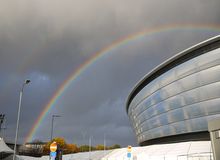
Miguel Wickham analyses the COP26 development, the challenges in addressing climate change, and the role of Christians.
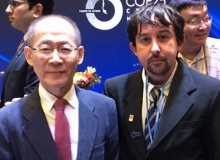
We talk to Christian scientist Fernando Forgioni about the challenges of COP26. He hopes it will promote real measures to curb the climate change.
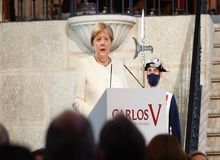
The German Chancellor received the Carlos V Award. She appealed to defend the EU values and to strengthen cooperation and unity to face the future challenges.
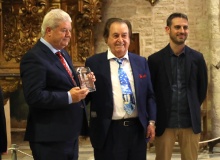
Santiponce, where the Spanish reformer lived and translated the Bible into Spanish for the first time, receives the prize for making “a true act of historical memory with Protestants”.
.jpg)
The lava has destroyed around 200 homes in the Spanish Canary island. Evangelicals in La Palma distribute emergency aid. “We ask for prayer”, says a pastor.
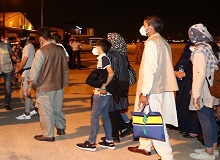
The Spanish evangelical organisation Diaconía is helping Afghan refugees settle in Spain. Director Conchi Rodríguez speaks about the challenges and opportunities, and how society reacts to the needs of asylum seekers.
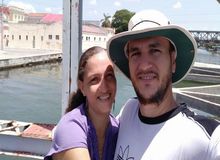
“God not only guarded us, He also orchestrated everything for His glory and the good of His work”, says Yéremi Blanco, one of the pastors detained in Cuba, after the resolution of his case.
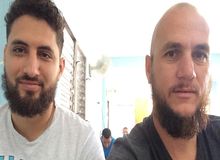
The case of Yéremi Blanco and Yarián Sierra is closed after paying a fine for participating in the peaceful demonstrations of July.

Miguel Wickham analyses the IPCC climate experts' report, which warns of serious consequences for habitability if temperatures continue to rise as a result of human action.
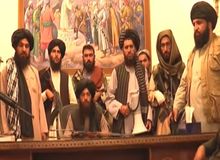
The government has fled and extremists have proclaimed a new Islamic State. “With the Taliban in power, the vulnerability of believers increases tenfold”, Christian organisations warn.
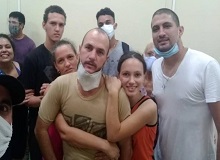
The pastors have been charged with the crime of “public disorder”. The theological seminary of which they are co-workers thanks for the prayers.
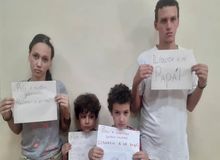
Yarián Sierra and Yéremi Blanco have been transferred to a men's prison. Yarián's wife denounced that they have been evicted from their rented house due to government pressure.
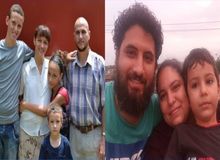
“Cuba can't take it any more”, says pastor Jatniel Pérez. The wife of one of the detained pastors denounces abuses. Both ask to pray for the release of Yéremi Blanco and Yarián Sierra.
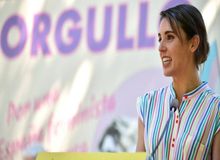
The government welcomes the “depathologisation“ of transgender people. Critics denounce legal uncertainties, a harmful approach to children, and the “erasure“ of women.

The Infancy Working Group of the Spanish Evangelical Alliance launches a Protocol for Child Protection. “We still have a long way to go”, says Javier Martín.
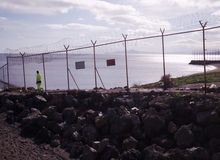
Evangelicals in the border between Spain and Morocco explain how they have experienced the migration crisis. The church is “helping as much as possible” those who are still in the streets.
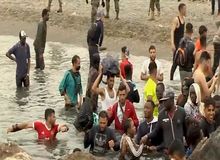
Over 8,000 people crossed the border from Morocco into Spain in two days, creating and unprecedented migration crisis in the region. Christians in Ceuta: “The situation is volatile, this could explode at any time. Please pray for the city”.
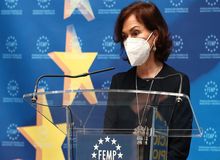
The Spanish Vice President presented a project to provide city councils with tools and resources “to manage religious diversity with equality, freedom and tolerance”.
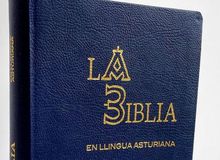
After more than three decades of work, the Bible in this language spoken by around 200,000 people in the north of Spain is a reality. “We want it to be the reference text in both the ecclesiastical and civil spheres”.
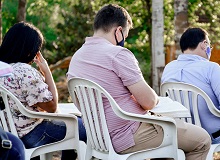
Law professor Javier Martínez Torrón has coordinated the book “Covid-19 and religious freedom”, which compares how governments like Spain, United Kingdom, Italy or the United States, related to faith groups during the pandemic.
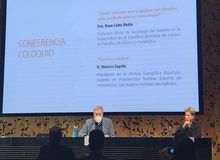
An event held in Madrid shows the successes of the Nordic model, which punishes the client, to curb trafficking and prostitution.

Las opiniones vertidas por nuestros colaboradores se realizan a nivel personal, pudiendo coincidir o no con la postura de la dirección de Protestante Digital.